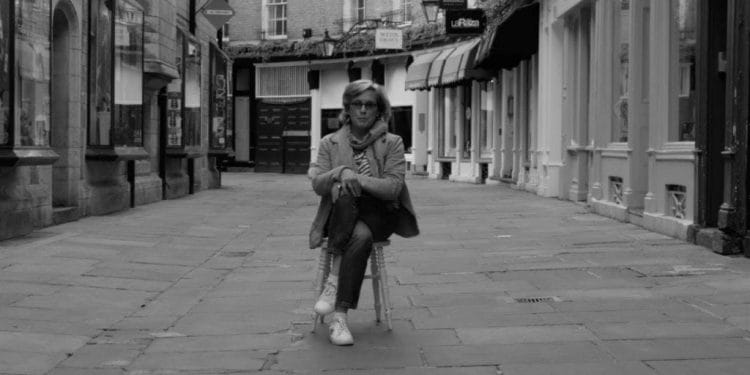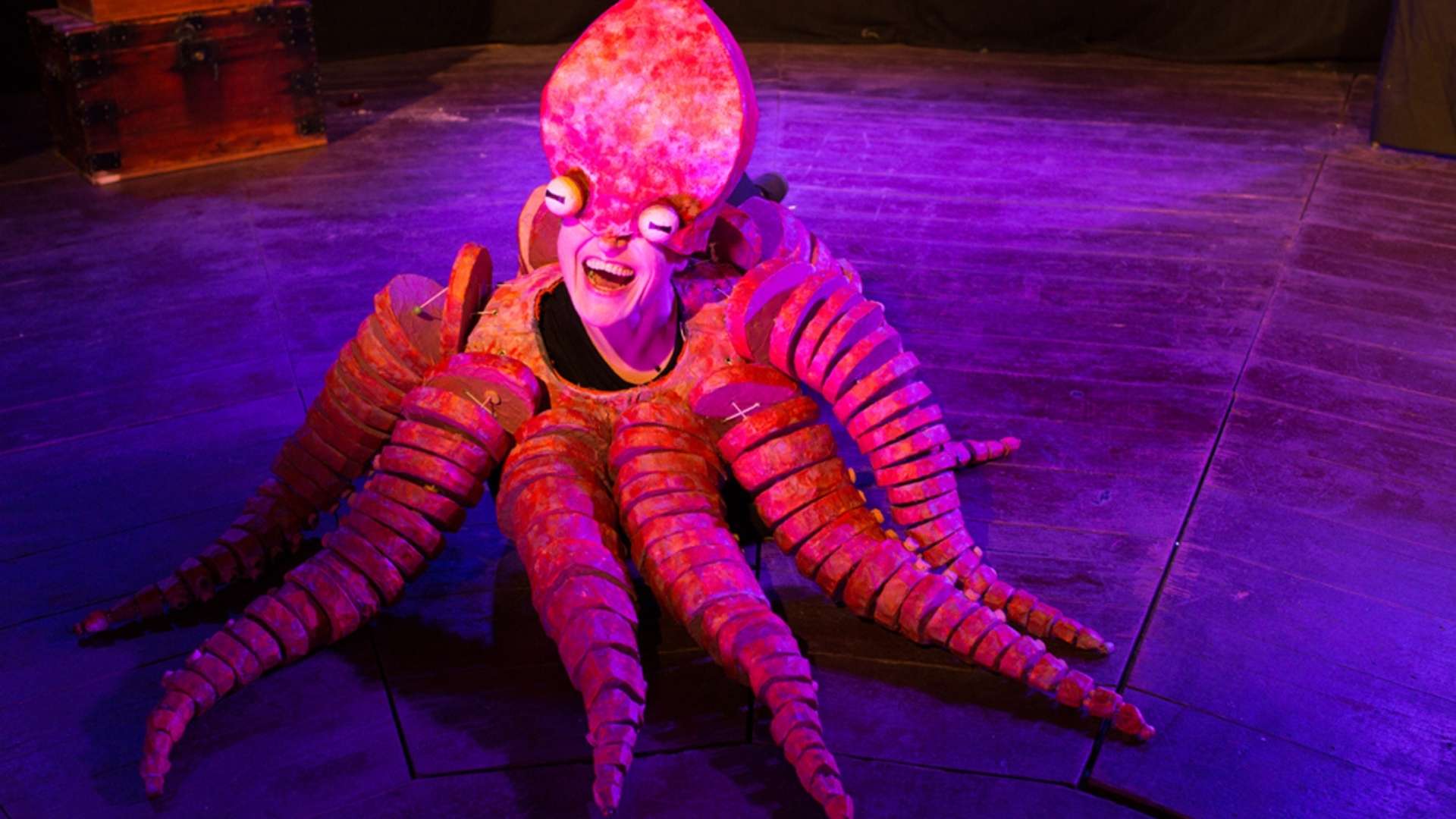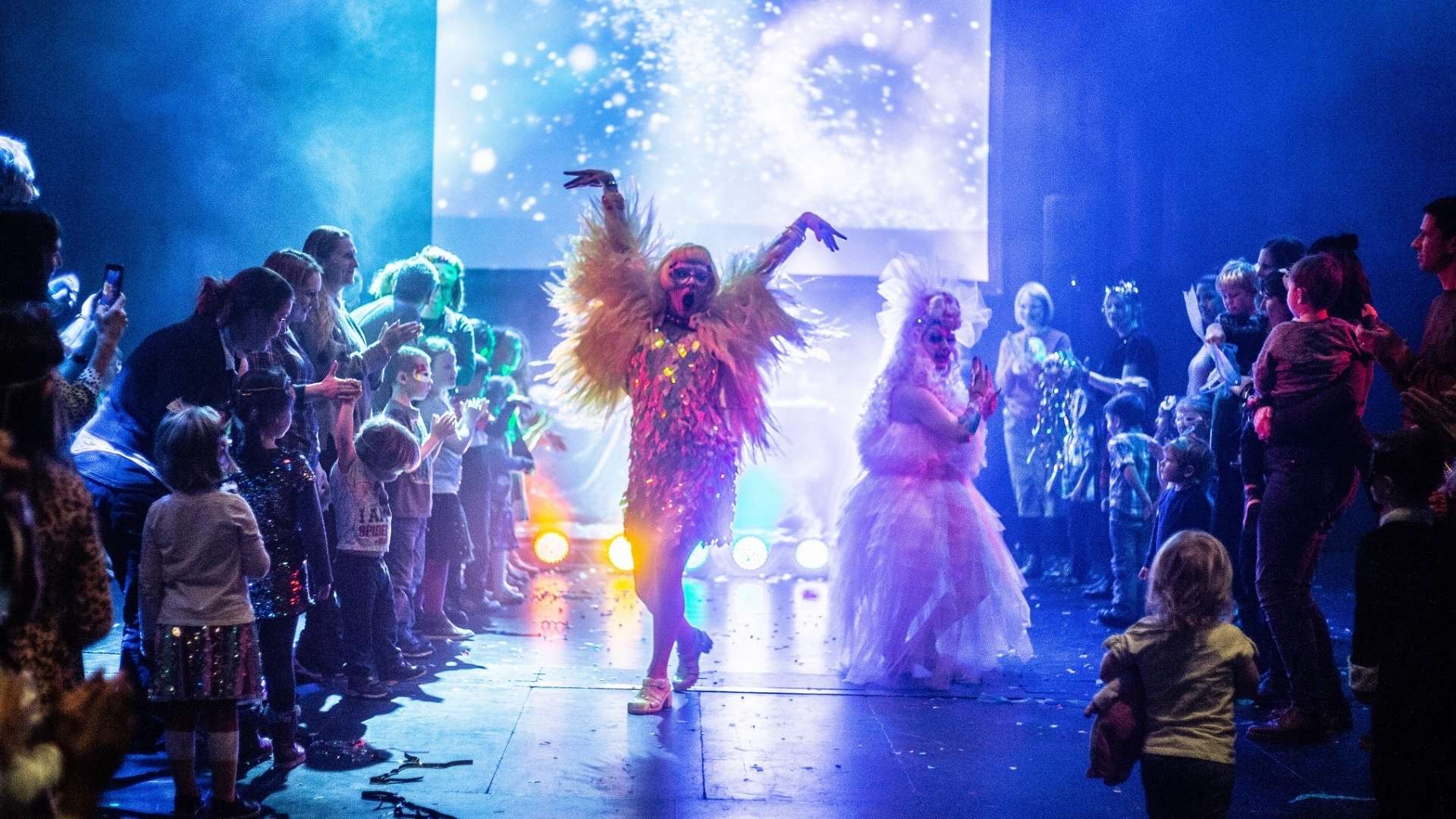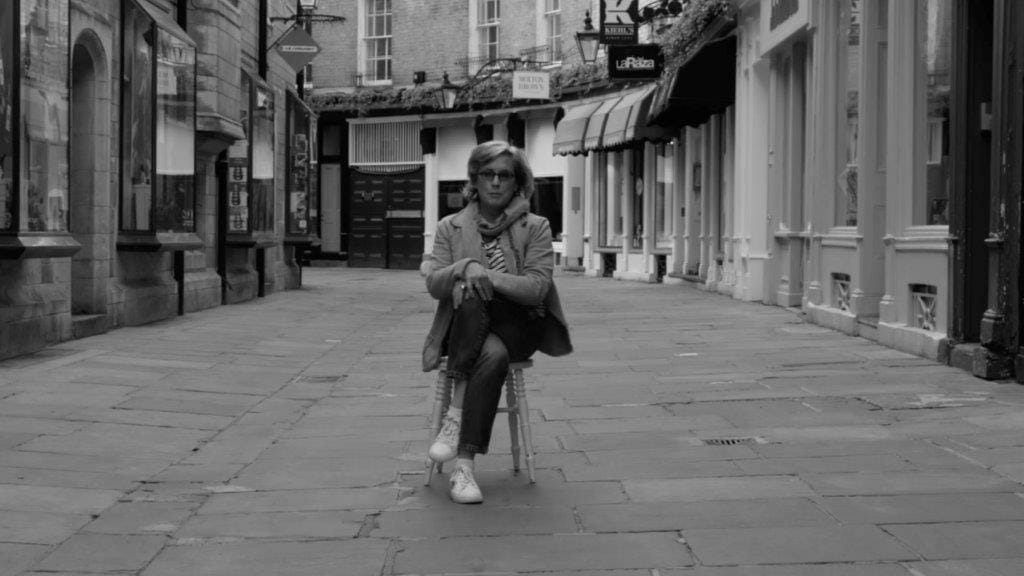Cambridge Junction will present the experimental digital production, Recovering Misogynist, written and read by Rachel Mariner.
This deeply autobiographical reading has been set to moving images by Fourth Culture Films Ltd and Twoflix, with music by Michel Csanyé-Wills and dramaturgy by Hannah Jane Walker and Caroline Horton.
Recovering Misogynist by Rachel Mariner will be available to watch from 12 August at 7pm on a pay what you want basis.
You’re releasing a digital production of Recovering Misogynist what can you tell us about it?
I can tell you there is no intermission, car chase, or “hero’s journey”. I can tell you that it’s a retelling of Bluebeard, a singular take on Occupy London and a casual journey through the kind of garden variety sexual assaults that made up my life. I can tell you that there really was a Debra and the Luxembourg verdict and an Exeter College Old Members’ Dinner but that Mary Beard did not host a dinner party in No Man’s Land next to the disembowelled remains of the War Horse puppet.
Maybe – probably — you’re much more woke than me and that you’ll take my miasma of misogyny as a spectacle rather than an object lesson. But I can tell you that we all have our darkness and since the world is so messed up it’s time to bring that darkness out into the light. So it’s light entertainment! Hah! That’s what I’m going with: it’s light entertainment. Blaming everyone else for the state of the world isn’t really working out so great. Maybe it’s time we blame ourselves.
What inspired you to write this piece?
When the Harvey Weinstein stuff started I felt sorry for Harvey Weinstein and I realised that my empathy had been programmed by the culture to be for the powerful. Oprah says that when people show you who they are you have to believe them so there I was having shown myself that I was on Harvey Wenstein’s side. Yech. So then I had to figure it out.
Tarana Burke started #metoo to empower through empathy so this piece is an experiment in having empathy for myself as a path to power. Don’t worry, I’m viciously critical of myself as well. The point is to explore empathy, power and being a woman who is unsatisfied with her world.
It’s a very personal work, how easy or difficult did you find it to write Recovering Misogynist?
This may be dorky attorney doublespeak but it was both incredibly easy and really hard. It was easy to draw upon the evidence of my life, it was hard to wade into this swamp of unflattering conclusions. There was a storm of difficulty brewing around the word ‘victim’ (that damned word) but I just put that conflict right in the piece. I was very fortunate to work with Caroline Horton whose piece All of Me took a hard look at herself and I found her understanding and views really comforting. I also worked with Lou Platt, an artist wellbeing practitioner, who was incredibly helpful in containing all the unleashed emotions.
What did you learn about yourself whilst writing it?
I learned how little of myself was ever actually for myself, how most of it was designed to please the patriarchy and that this shaped my instincts and emotions in a more or less permanent way.
I learned that despite my protestations that I am an ex-Christian, I can’t help but see a power in the universe that wants to help us out.
The show has a couple retellings of Bluebeard and there is one line:
“…the most remarkable thing in the original Bluebeard is how bad Bluebeard’s wife feels for opening the chamber and seeing the dead former wives. How by exposing the misogyny she felt like she was doing something wrong”
Recovery is a humiliating ongoing process. I feel bad like Bluebeard’s wife sometimes.
I learned more respect for female voices – that alone was transformative. I worked with Hannah Jane Walker who is a feminist poet and we read Mary Beard’s Women & Power and she showed me a voice for this voiceless part of myself. I had previously been pretty uninterested in feminists because they didn’t seem to me to have much power.
Ok, another thing I learned is that needing to be right, needing to be happy, needing to be successful – those needs put you right in Bluebeard’s castle.
And I’ll say that I learned I’m not done. I’m not finished. I’m just getting started.
Tell us how it’s been adapted from a stage production to a digital production?
Cambridge Junction has an artists’ collective called Troop who started meeting Thursdays during lockdown via Zoom and I asked if I could read them the script. I read it on a call and somehow with my voice on the small screen it worked. The piece has an intimate, confessional quality that fits the medium so we steered toward something like a Zoom reading. My producer Sarah Reed thought the text better served with images to accompany the reading so we hired Twoflix, a videography company in Cambridge I had worked with. In our first production meeting Twoflix asked what the vision was for the piece and Sarah and I realised we really didn’t have a digital vision – we had a stage vision with a performer who wasn’t me. I knew exactly one cinematographer in all the world who happened to live in Cambridge and we hired him, Steffen Wild, to provide the vision. He referred us to Michael Csanyi-Wills, the composer.
What’s been the biggest challenge for you in creating this work?
The biggest challenge is putting it out into the world. The #me of my #metoo story has an ego and a distrusting nature. Those are tricky qualities. It’s hard for collaborators when the writer’s material is so honest that it makes her nauseous/vulnerable/sleeplessly uncomfortable. This show is me processing trauma to find my unconscious bias against myself which is what I want to inspire the audience to do but this level of introspection risks a certain douchebag quality.
Walker Percy says in Lost in the Cosmos that a stranger “approaching you on the street will in a second’s glance see you whole, size you up, place you in a way in which you cannot and never will even though you have spent a lifetime with yourself”. That’s another way to look at the same challenge.
What would you say to anyone thinking of tuning in to Recovering Misogynist?
I would say three things. First, do it quickly because names are named and I can’t believe that we won’t get into some kind of trouble at some point. Second, get some kind of iced tea or sparkling water or something so you won’t be thirsty (See q1, no intermission). Third and most importantly, thank you for tuning in to this story. I wonder what these stories from my life will call to your mind about yours. Tell me! @rachelmariner
















